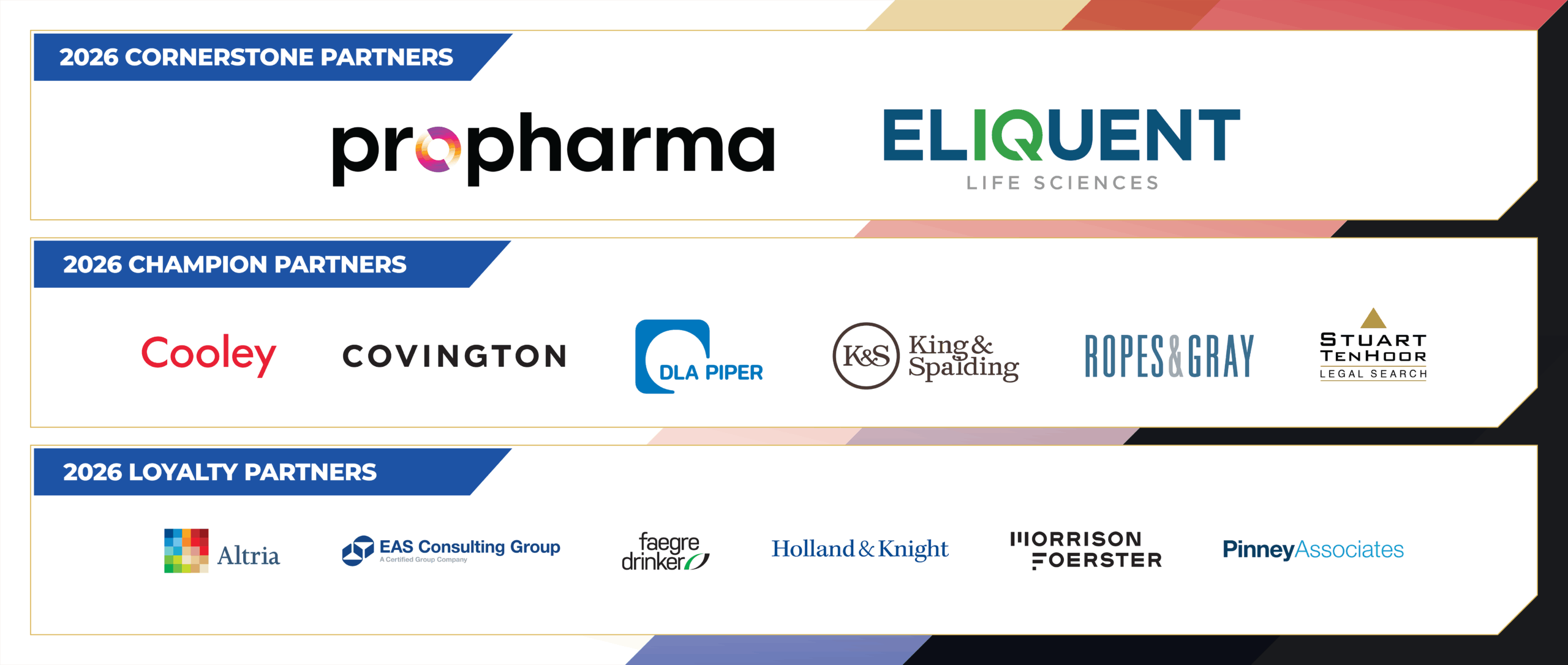Overview
Approaches to the emerging business of cannabis products seem to change on a daily basis: Legal? Illegal? Beneficial? Harmful? This webinar will provide an overview of the current state of cannabis regulation. We will first discuss scientific definitions of various cannabis-derived substances, including CBD, THC, and hemp, and the pharmacology of how these substances can affect the body. Our experts will then provide updates to various federal agencies’ regulation of cannabis products, as well as implications for companies operating in states that have legalized cannabis for medical and/or recreational purposes. Finally, we will provide an update on international governing bodies’ approaches to cannabis regulation.
Get Access
- +$100 for nonmembers
Internet Explorer and Microsoft Edge are not supported by the checkout process.
Please use Chrome, Firefox, or Safari. If you are unable to use these browsers, please contact us at 202-371-1420 or [email protected] and we will assist you.
Speakers
William Garvin, Shareholder, Buchanan Ingersoll & Rooney PC
Aidan Hampson, Special Content Expert Cannabis, NIDA
Jonathan Havens, Partner, Chair of Food & Beverage Practice, Co-Chair of Cannabis Law Practice, Saul Ewing Arnstein & Lehr LLP
Larry Houck, Director, Hyman, Phelps & McNamara, PC
Moderated by Bridget Dooling, Research Professor, George Washington University
Virtual Learning FAQ
Related Content

 JONATHAN HAVENS is the co-chair of the Cannabis Law Practice and chair of the Food and Beverage Practice at Saul Ewing Arnstein & Lehr LLP. He counsels state cannabis license applicants and awardees, ancillary service and product providers, investors, management companies, and various other entities that are affected by federal and state marijuana laws. Jonathan was named to the National Law Journal’s Cannabis Law Trailblazers list in 2018 and listed in Chambers USA 2019: America’s Leading Lawyers for Business for his nationwide cannabis law practice. He is regularly interviewed by mainstream and trade press outlets, alike, and has been quoted by or authored pieces for CNBC, The New York Times, The Los Angeles Times, WIRED, MarketWatch, Engadget, Law360, High Times Magazine, Cannabis Business Times, and HEMP Magazine. In addition to his cannabis law practice, Jonathan maintains an active food and beverage practice, particularly with regard to cannabidiol (CBD) products, in which he counsels manufacturers, importers, distributors, and retailers of conventional foods, dietary supplements, and beverages on product development, claim substantiation, labeling, promotion, registration, reporting, and recall issues to ensure compliance with FDA and USDA requirements. He currently serves on FDLI’s Cannabis-Derived Products Committee and previously served on the Institute’s Tobacco Products Committee. Before entering private practice, Jonathan served as a regulatory counsel with FDA, where he focused on compliance and enforcement related to promotion, advertising, and labeling. Prior to law school, Jonathan served as a legislative aide in both the US Senate and US House of Representatives
JONATHAN HAVENS is the co-chair of the Cannabis Law Practice and chair of the Food and Beverage Practice at Saul Ewing Arnstein & Lehr LLP. He counsels state cannabis license applicants and awardees, ancillary service and product providers, investors, management companies, and various other entities that are affected by federal and state marijuana laws. Jonathan was named to the National Law Journal’s Cannabis Law Trailblazers list in 2018 and listed in Chambers USA 2019: America’s Leading Lawyers for Business for his nationwide cannabis law practice. He is regularly interviewed by mainstream and trade press outlets, alike, and has been quoted by or authored pieces for CNBC, The New York Times, The Los Angeles Times, WIRED, MarketWatch, Engadget, Law360, High Times Magazine, Cannabis Business Times, and HEMP Magazine. In addition to his cannabis law practice, Jonathan maintains an active food and beverage practice, particularly with regard to cannabidiol (CBD) products, in which he counsels manufacturers, importers, distributors, and retailers of conventional foods, dietary supplements, and beverages on product development, claim substantiation, labeling, promotion, registration, reporting, and recall issues to ensure compliance with FDA and USDA requirements. He currently serves on FDLI’s Cannabis-Derived Products Committee and previously served on the Institute’s Tobacco Products Committee. Before entering private practice, Jonathan served as a regulatory counsel with FDA, where he focused on compliance and enforcement related to promotion, advertising, and labeling. Prior to law school, Jonathan served as a legislative aide in both the US Senate and US House of Representatives BRIDGET DOOLING is a research professor with the GW Regulatory Studies Center. Previously, she was a deputy chief, senior policy analyst, and attorney for the Office of Information and Regulatory Affairs (OIRA) at the U.S. Office of Management and Budget (OMB). She has handled regulatory matters related to health insurance, medical privacy (HIPAA), pharmaceuticals, biologics, medical devices, tobacco products, general consumer products, Medicare, veterans, K-12 and higher education, labor/workforce/benefits issues, and more. She is a senior fellow of the Administrative Conference of the United States, a government agency that advises on administrative law and policy, after serving many years as OMB’s voting member. While at OIRA, Professor Dooling also taught a course on regulation at George Mason University’s law school. Professor Dooling’s earlier professional experience includes a clerkship for an administrative law judge at the U.S. Department of Labor and positions in the Antitrust Division of the U.S. Department of Justice, a U.S. airline’s legal department, and the economics team at an aviation trade association. Professor Dooling is a regular contributor to the Yale Journal on Regulation’s Notice & Comment blog. She is a member of the American Bar Association’s Administrative Law and Regulatory Practice. She also actively participates in the Food & Drug Law Institute, having served as vice chair of the editorial board of the Food & Drug Law Journal, on the editorial board of the institute’s bi-monthly Update magazine, and a member of the new Cannabis-Derived Products Committee. In law school, Professor Dooling was the Editor-in-Chief of the Federal Circuit Bar Journal. Professor Dooling is licensed to practice law in Virginia.
BRIDGET DOOLING is a research professor with the GW Regulatory Studies Center. Previously, she was a deputy chief, senior policy analyst, and attorney for the Office of Information and Regulatory Affairs (OIRA) at the U.S. Office of Management and Budget (OMB). She has handled regulatory matters related to health insurance, medical privacy (HIPAA), pharmaceuticals, biologics, medical devices, tobacco products, general consumer products, Medicare, veterans, K-12 and higher education, labor/workforce/benefits issues, and more. She is a senior fellow of the Administrative Conference of the United States, a government agency that advises on administrative law and policy, after serving many years as OMB’s voting member. While at OIRA, Professor Dooling also taught a course on regulation at George Mason University’s law school. Professor Dooling’s earlier professional experience includes a clerkship for an administrative law judge at the U.S. Department of Labor and positions in the Antitrust Division of the U.S. Department of Justice, a U.S. airline’s legal department, and the economics team at an aviation trade association. Professor Dooling is a regular contributor to the Yale Journal on Regulation’s Notice & Comment blog. She is a member of the American Bar Association’s Administrative Law and Regulatory Practice. She also actively participates in the Food & Drug Law Institute, having served as vice chair of the editorial board of the Food & Drug Law Journal, on the editorial board of the institute’s bi-monthly Update magazine, and a member of the new Cannabis-Derived Products Committee. In law school, Professor Dooling was the Editor-in-Chief of the Federal Circuit Bar Journal. Professor Dooling is licensed to practice law in Virginia. LARRY K. HOUCK is a director at Hyman, Phelps & McNamara PC where he provides counsel on regulatory and enforcement actions by the DEA. His career encompasses over 30 years of conducting investigations and negotiating on behalf of both the government and industry. Mr. Houck focuses on controlled substances, prescription drugs, and regulated chemicals, helping clients navigate federal and state licensing, registration, and compliance issues. Mr. Houck counsels clients throughout the registrant supply chain on administrative, civil, and criminal proceedings. In situations where clients face enforcement action, Mr. Houck has extensive understanding of the DEA’s approach and priorities. He advises pharmaceutical and chemical companies on DEA inspections and audits. By working with clients to review business practices, he helps create the infrastructure to ensure compliant reporting, record keeping, and security. Before joining Hyman, Phelps & McNamara in 2001, Mr. Houck served as a DEA diversion investigator and policy staff coordinator. As a diversion investigator in the Washington, DC and Portland, Oregon, field offices, Mr. Houck conducted a full range of regulatory and criminal investigations and inspections of controlled substance and chemical registrants. While serving as a staff coordinator for the DEA’s Office of Diversion Control’s Liaison and Policy, he advised government officials and pharmaceutical and health care professionals on the Controlled Substance Act and its regulations. Mr. Houck drafted and helped implement the DEA’s controlled substance policies and regulations on diversion control issues that included pain management.
LARRY K. HOUCK is a director at Hyman, Phelps & McNamara PC where he provides counsel on regulatory and enforcement actions by the DEA. His career encompasses over 30 years of conducting investigations and negotiating on behalf of both the government and industry. Mr. Houck focuses on controlled substances, prescription drugs, and regulated chemicals, helping clients navigate federal and state licensing, registration, and compliance issues. Mr. Houck counsels clients throughout the registrant supply chain on administrative, civil, and criminal proceedings. In situations where clients face enforcement action, Mr. Houck has extensive understanding of the DEA’s approach and priorities. He advises pharmaceutical and chemical companies on DEA inspections and audits. By working with clients to review business practices, he helps create the infrastructure to ensure compliant reporting, record keeping, and security. Before joining Hyman, Phelps & McNamara in 2001, Mr. Houck served as a DEA diversion investigator and policy staff coordinator. As a diversion investigator in the Washington, DC and Portland, Oregon, field offices, Mr. Houck conducted a full range of regulatory and criminal investigations and inspections of controlled substance and chemical registrants. While serving as a staff coordinator for the DEA’s Office of Diversion Control’s Liaison and Policy, he advised government officials and pharmaceutical and health care professionals on the Controlled Substance Act and its regulations. Mr. Houck drafted and helped implement the DEA’s controlled substance policies and regulations on diversion control issues that included pain management.










